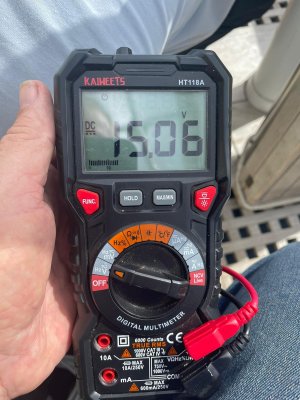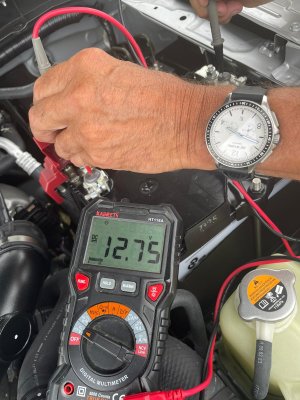john_morris_uk
Well-known member
When I leave the boat for an extended period the generator battery (like all wet lead acid batteries) will slowly self discharge. The main house batteries have a bank of solar wired to them via a Victron MPPT controller so they’re maintained perfectly. My solution for maintaining the generator battery was to buy a small solar panel without controller and just leave it connected. I thought I’d done my research well enough and bought a 20 Watt panel but even when the conditions are a bit overcast the float voltage is up at 15 volts or so. (The boat’s ashore in St Kitts in the Caribbean so gets plenty of strong sun!)
Here’s the float voltage with panel connected:

Should I be worried about the nigh float voltage? Should I fit a cheap controller? Am I worrying about nothing? Any suggestions?
Here’s the float voltage with panel connected:

Should I be worried about the nigh float voltage? Should I fit a cheap controller? Am I worrying about nothing? Any suggestions?
Attachments
Last edited:

